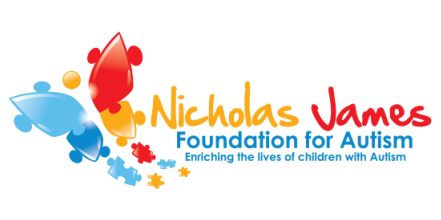Facts and Statistics - Autism Society
1. Pediatrics, October 5, 2009, based on a National Children’s Health Survey done with 78,000 parents in 2007.
2. "Prevalence of Autism Spectrum Disorders — Autism and Developmental Disabilities Monitoring Network, 14 Sites, United States, 2008." Department of Health and Human Services, Centers for Disease Control and Prevention. Morbitity and Mortality Weekly Report, 30 March 2012.
3. Based on the autism prevalence rate of 1 in 110 (Centers for Disease Control and Prevention, 2009) and 2000 U.S. Census figure of 280 million Americans.
4. “Autistic Spectrum Disorders: Changes in the California Caseload, An Update June 1987 June 20007.” Cavagnaro, Andre T., California Health and Human Services Agency. State of California 2003 survey of developmental disabilities.
5. Autism Society estimate based on 2003 US state educational data.
6. Autism Society estimates based on UK study by Jarbrink K, Knapp M, 2001, London School of Economics: "The economic impact on autism in Britain," Autism, 5 (1): 7-22.
7. Autism Society estimate.
8. Autism Society estimate, using Government Accounting Office Report on Autism 2007.
9. Autism Society estimate.
10. Autism Spectrum Disorders in adults living in households throughout England," Report from the Adult Psychiatric Morbidity Survey 2007, a survey carried out for the United Kingdom NHS Information Centre for health and social care.
11. Arch Pediatric Adolesc Med. 2007;161:343-349.
12. (Wagner. M., et al. An Overview of Findings from Wave 2 of the National Transition Study, SRI International, Menlo Park, CA)
13. (GAO-05-220, Special Education Report to Congress, 2005)
14. Current Population Survey. (December 2010). Bureau of Labor Statistics, Washington, DC.
- 1 percent of the population of children in the U.S. ages 3-17 have an autism spectrum disorder.1
- Prevalence is estimated at 1 in 88 births.2
- 1 to 1.5 million Americans live with an autism spectrum disorder.3
- Fastest-growing developmental disability; 1,148% growth rate.4
- 10 - 17 % annual growth.5
- $60 billion annual cost.6
- 60% of costs are in adult services.7
- Cost of lifelong care can be reduced by 2/3 with early diagnosis and intervention.8
- In 10 years, the annual cost will be $200-400 billion.9
- 1 percent of the adult population of the United Kingdom have an autism spectrum disorder.10
- The cost of autism over the lifespan is 3.2 million dollars per person.11
- Only 56% of students with autism finish high school.12
- The average per-pupil expenditure for educating a child with autism was estimated by SEEP to be over $18,000 in the 1999-2000 school year. This estimate was nearly three times the expenditure for a typical regular education student who did not receive special education services.13
- The unemployment rate for people with disabilities was at 14%, compared with 9% for people without a disability. Additionally, during the same period, only 21% of all adults with disabilities participated in the labor force as compared with 69% of the non-disabled population.14
1. Pediatrics, October 5, 2009, based on a National Children’s Health Survey done with 78,000 parents in 2007.
2. "Prevalence of Autism Spectrum Disorders — Autism and Developmental Disabilities Monitoring Network, 14 Sites, United States, 2008." Department of Health and Human Services, Centers for Disease Control and Prevention. Morbitity and Mortality Weekly Report, 30 March 2012.
3. Based on the autism prevalence rate of 1 in 110 (Centers for Disease Control and Prevention, 2009) and 2000 U.S. Census figure of 280 million Americans.
4. “Autistic Spectrum Disorders: Changes in the California Caseload, An Update June 1987 June 20007.” Cavagnaro, Andre T., California Health and Human Services Agency. State of California 2003 survey of developmental disabilities.
5. Autism Society estimate based on 2003 US state educational data.
6. Autism Society estimates based on UK study by Jarbrink K, Knapp M, 2001, London School of Economics: "The economic impact on autism in Britain," Autism, 5 (1): 7-22.
7. Autism Society estimate.
8. Autism Society estimate, using Government Accounting Office Report on Autism 2007.
9. Autism Society estimate.
10. Autism Spectrum Disorders in adults living in households throughout England," Report from the Adult Psychiatric Morbidity Survey 2007, a survey carried out for the United Kingdom NHS Information Centre for health and social care.
11. Arch Pediatric Adolesc Med. 2007;161:343-349.
12. (Wagner. M., et al. An Overview of Findings from Wave 2 of the National Transition Study, SRI International, Menlo Park, CA)
13. (GAO-05-220, Special Education Report to Congress, 2005)
14. Current Population Survey. (December 2010). Bureau of Labor Statistics, Washington, DC.
